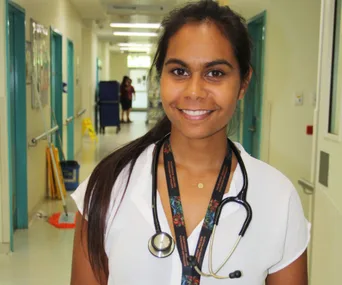For the first time ever, there are more female GPs in Australia than their male counterparts.
The Royal Australian College of General Practitioners revealed women now account for 50.2 per cent of GPs in 2016-2017 – a rise from 47 per cent in 2012 – 2013.
There was a time in the not too distant past when females couldn’t even study to become doctors, let alone be taken seriously and be over-represented in the profession. There wasn’t a single female among the founding members of the college they have a majority in today.
Massive leaps have been taken across all professional degrees, including medicine, that have seen a huge jump in female representation from 25 per cent in the 1970s to 50 per cent in 2015 according to authors at the University of Melbourne.
Now there are typically more women in medical schools not just in Australia, but across the world including countries like UK, Canada, Sweden and the US.
Some ~~people~~ men took this information to bolster their claims that we don’t need feminism, patriarchy is a lie, women are equal etc.
I know it’s been a long time since anyone took anything Mark Latham said seriously, but his tweet highlights misconceptions about this, albeit fantastic, statistic.
Despite the huge rise of women in medical schools, this has in no way translated into the number of females in higher-paying specialities and chief executive roles.
While female specialists have soared from just 16 per cent in 1986 to 34 per cent in 2011, it’s skewed in a very specific fashion.
Females account for above or just below the 50 per cent mark for specialities like pathology paediatrics and obstetrics and gynaecology, but they don’t even crack double figures for orthopaedic surgery and only hit the early teens for vascular surgery and cardiothoracic surgery.
The most common reason for this is perhaps because women have traditionally been more inclined to choose general thanks to a shorter training program and the prospect of no out-of-hours duties.
With the onus still on women to be home for their children, it’s a far more attractive, if not the only, option for female doctors.
Also, the extra years needed to specialise massively impact on a time when many women would like to ideally start a family.
Pair that with lack of flexibility in physician training, gruelling exam timetables and draining shift work while many women are trying to get pregnant, the higher paying specialities remains out of reach for many females for reasons that simply don’t affect men.
Becoming a GP is still one of the most taxing career choices out there. It takes years of hard study, is in no way a back-up plan for doctors and realistically, the entire health system would crumble without it.
And with more and more women choosing not to have children, I’m not making gender assumptions about women’s reproductive choices – I’m merely addressing that inequalities seem to exist purely based on sex.
WATCH: Vinka Barunga set to be the first Aboriginal doctor in her hometown.
When we have people like Mark Latham dismissing the inequalities women face in so many ways, including the prestigious world of medicine, it can’t be ignored.
In the words of Helen Dickinson and Marie Bismark, authors of a study from the University of Melbourne, women are still being channelled into the areas of the profession that are lower status and as a result attract lower pay, while their male counterparts continue to hold a monopoly on the high-profile roles.
But how do we fix it?
Realistically, we need a huge shift in culture more than anything – glass ceilings are in place in far more professions than medicine – but more flexibility and childcare options certainly wouldn’t hurt.


-scaled.jpg?resize=380%2C285)
